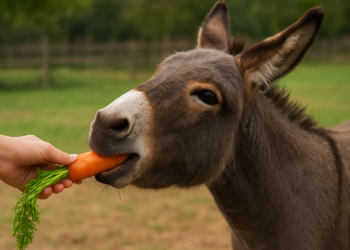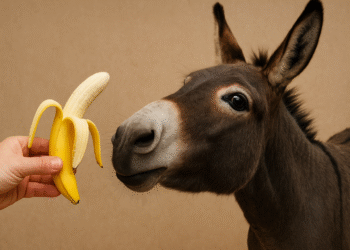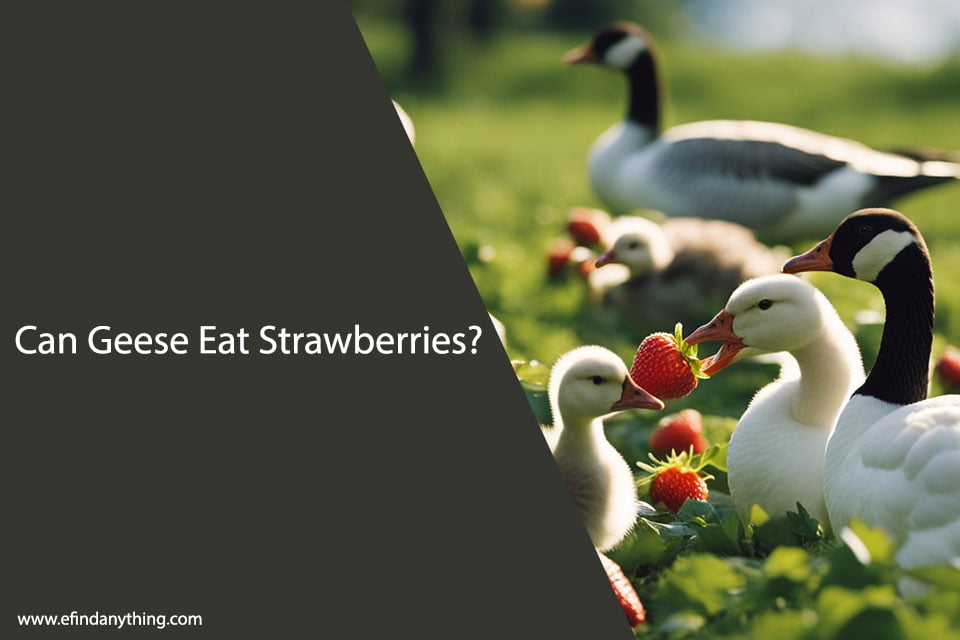Conures are a popular pet bird species known for their bright colors, playful nature, and ability to mimic human speech. As with any pet, it’s important to provide them with a balanced and nutritious diet to ensure their overall health and wellbeing. One question that often arises for conure owners is whether or not their birds can eat oranges.

Oranges are a commonly consumed fruit by humans, but can they be a safe and healthy addition to a conure’s diet? In this article, we’ll explore the nutritional benefits and potential risks of feeding oranges to conures. We’ll also provide tips on how to safely introduce oranges into your bird’s diet and how to monitor their consumption for any adverse reactions.
Conure Dietary Basics
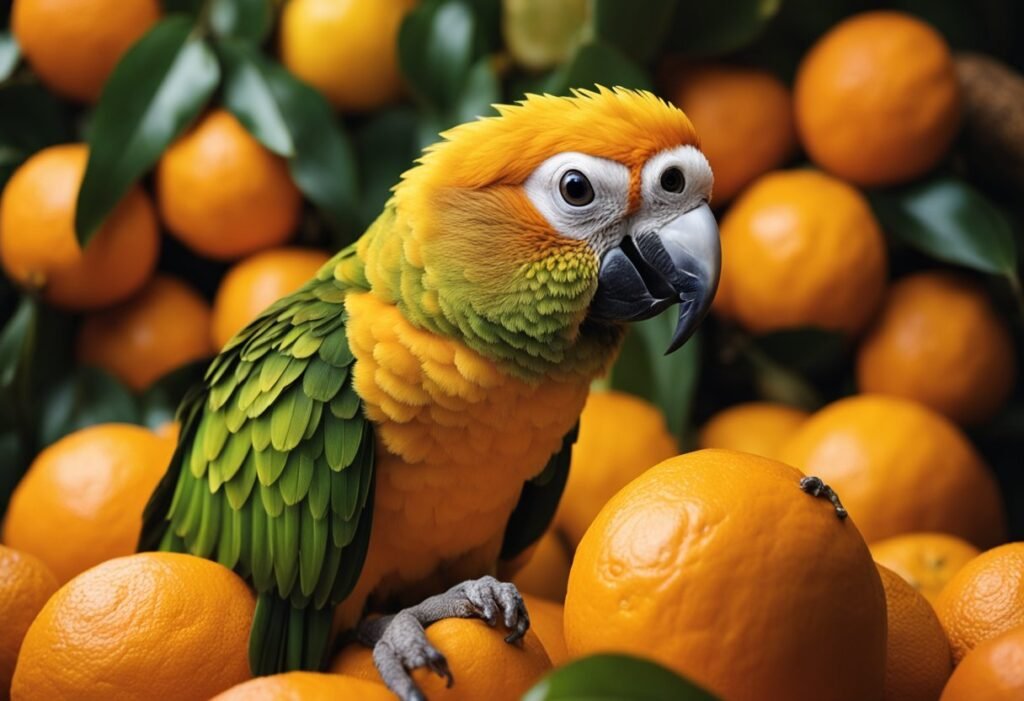
As responsible pet owners, we must ensure that our conures receive a balanced diet to maintain their health and well-being. While it can be tempting to feed them human foods, not all foods are suitable for our feathered friends. In this section, we will discuss the basics of a conure’s diet.
Pellets
Pellets are a staple in a conure’s diet as they provide essential nutrients that are necessary for their growth and development. They come in different sizes and shapes, and it’s essential to choose pellets that are specifically formulated for conures. Pellets should make up 60-70% of a conure’s diet.
Fresh Fruits and Vegetables
Fresh fruits and vegetables are an excellent source of vitamins and minerals for conures. They should make up 20-30% of a conure’s diet. When feeding fruits and vegetables, it’s important to wash them thoroughly and remove any seeds, pits, or cores. Some fruits and vegetables that are safe for conures to eat include:
- Apples
- Bananas
- Oranges
- Broccoli
- Carrots
- Spinach
Seeds and Nuts
Seeds and nuts should only make up a small portion of a conure’s diet as they are high in fat. They should not exceed 10% of their daily intake. Some safe seeds and nuts for conures include:
- Sunflower seeds
- Pumpkin seeds
- Almonds
- Walnuts
It’s important to note that conures should not be fed avocado, chocolate, caffeine, alcohol, or any food that contains high amounts of salt, sugar, or fat.
By providing our conures with a balanced diet, we can ensure that they live a healthy and happy life.
Benefits of Oranges for Conures
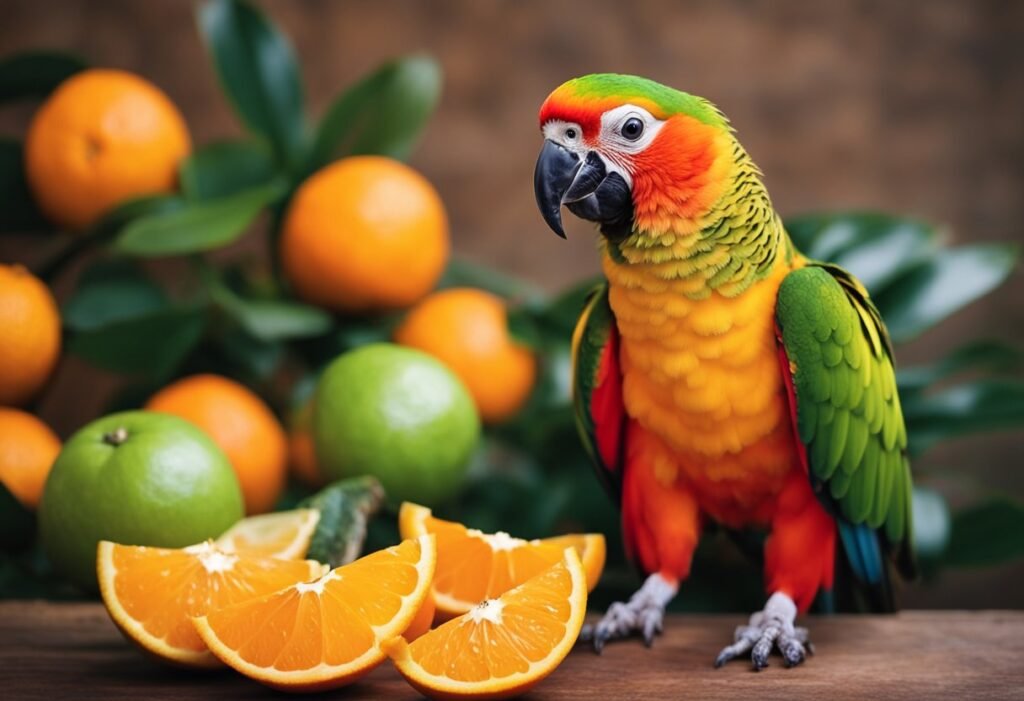
Oranges are a great source of vitamins and minerals for your pet conure. Here are some benefits of feeding oranges to your feathered friend:
- Vitamin C: Oranges are a great source of vitamin C, which is essential for the immune system of your conure. It helps prevent diseases and infections.
- Fiber: Oranges contain fiber that helps regulate the digestive system of your conure and prevents constipation.
- Antioxidants: Oranges are rich in antioxidants that help fight free radicals in the body of your conure, which can cause cell damage.
- Hydration: Oranges are a great source of water, which helps keep your conure hydrated, especially during hot weather.
It is important to note that oranges should be given to your conure in moderation. While they are a healthy treat, too much can cause digestive problems and diarrhea. Also, make sure to remove any seeds from the orange before feeding it to your conure, as they can be toxic.
Overall, feeding oranges to your conure in moderation can provide many health benefits and should be a part of a well-balanced diet.
Potential Risks of Feeding Oranges to Conures

As much as we love to share our favorite fruits with our feathered friends, it is important to note that not all fruits are safe for them to consume. Oranges, in particular, may pose some potential risks to conures.
One of the main concerns with feeding oranges to conures is the high level of acidity in the fruit. The acid in oranges can cause irritation and inflammation in a bird’s crop, leading to discomfort and potential health issues. Additionally, the high sugar content in oranges can also lead to digestive problems and weight gain if consumed in excess.
Another potential risk of feeding oranges to conures is the presence of pesticides. Oranges are often treated with pesticides, which can be harmful to birds if ingested. It is important to thoroughly wash and peel any oranges before offering them to your conure to minimize the risk of pesticide exposure.
Lastly, it is important to note that not all birds may be able to tolerate oranges. Some birds may have an allergic reaction to the fruit, which can cause symptoms such as itching, swelling, and difficulty breathing. If you notice any adverse reactions in your conure after feeding them oranges, it is best to discontinue the fruit and consult with a veterinarian.
Overall, while oranges may seem like a healthy and tasty treat for your conure, it is important to be aware of the potential risks associated with feeding them this fruit. As with any new food item, it is best to introduce oranges to your conure’s diet in small quantities and monitor their reaction closely.
How to Feed Oranges to Conures

Feeding oranges to conures can be a great way to provide them with essential vitamins and minerals. However, it is important to do so in a safe and healthy manner. Here are some tips on how to feed oranges to your conure:
1. Wash the Orange Thoroughly
Before feeding the orange to your conure, make sure to wash it thoroughly. This will remove any dirt or pesticides that may be present on the skin. You can use a mild soap or a fruit and vegetable wash to clean the orange.
2. Cut the Orange into Small Pieces
Conures have small beaks, so it is best to cut the orange into small pieces that are easy for them to eat. You can also remove the seeds to prevent your conure from accidentally ingesting them.
3. Offer the Orange as a Treat
Oranges should be offered as a treat and not as a staple food in your conure’s diet. Too much citrus can cause digestive problems in birds. Offer oranges in moderation, and make sure to provide a balanced diet that includes other fruits, vegetables, and pellets.
4. Watch for Signs of Allergic Reaction
Some birds may be allergic to citrus fruits like oranges. Watch for signs of allergic reaction such as vomiting, diarrhea, or difficulty breathing. If you notice any of these symptoms, remove the orange from your conure’s diet and consult with your veterinarian.
By following these tips, you can safely and healthily feed oranges to your conure as a treat. Remember to always provide a balanced diet and watch for any signs of health problems.
Recommended Quantity of Oranges for Conures
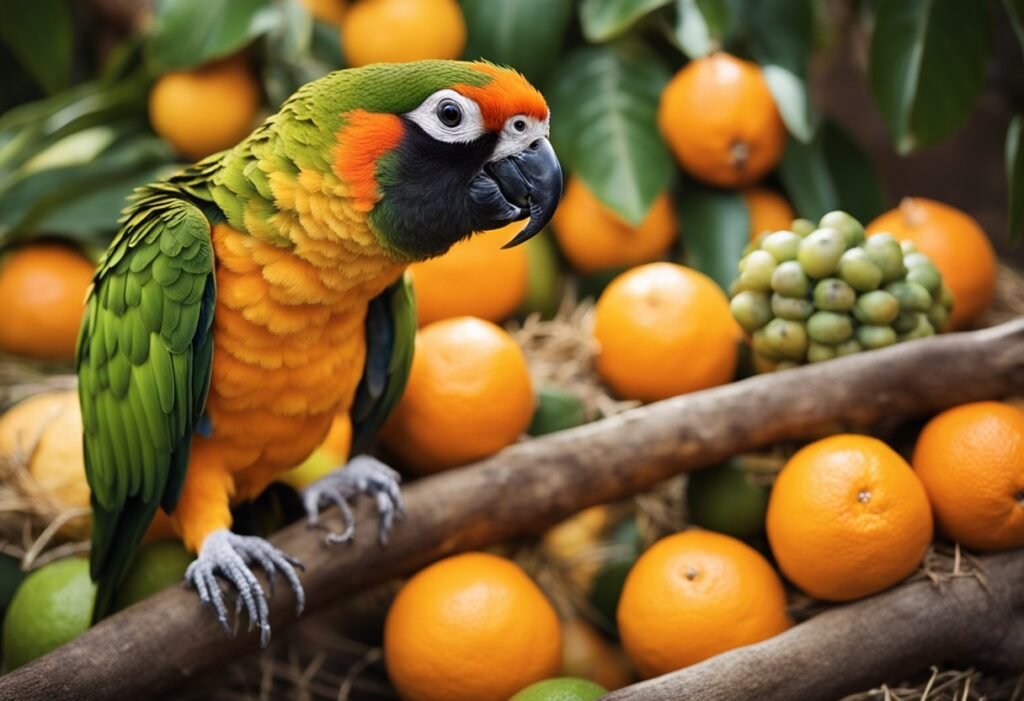
As with any fruit, oranges should be given to conures in moderation. While they are a great source of vitamin C and other nutrients, too much can cause digestive issues or an upset stomach.
As a general rule, we recommend giving your conure no more than 1-2 small slices of orange per week. This should be in addition to a balanced diet of pellets, fresh vegetables, and other fruits.
It’s important to note that some conures may have a sensitivity to citrus fruits, including oranges. If you notice any signs of discomfort or digestive issues after giving your conure oranges, it’s best to avoid them altogether.
Overall, oranges can be a healthy and tasty addition to your conure’s diet when given in moderation. As with any dietary changes, it’s important to consult with your avian veterinarian before making any significant changes to your conure’s diet.
Alternative Fruits for Conures
As much as we love feeding our conures oranges, it’s always good to mix things up and offer them a variety of fruits to keep their diet balanced and interesting. Here are some alternative fruits that are safe for conures to eat:
1. Apples
Apples are a great source of fiber and vitamin C for conures. They are also low in fat and calories, making them a healthy snack option. Just make sure to remove the seeds and core before giving them to your conure.
2. Grapes
Grapes are a good source of hydration and contain antioxidants that can benefit your conure’s overall health. However, make sure to cut them into small pieces to avoid choking hazards.
3. Berries
Berries such as strawberries, blueberries, and raspberries are packed with vitamins and antioxidants. They are also low in sugar, making them a great alternative to sugary treats. Just make sure to wash them thoroughly before feeding them to your conure.
4. Mango
Mangoes are a great source of vitamin A and fiber. They are also sweet and juicy, making them a tasty treat for your conure. However, make sure to remove the skin and pit before giving them to your conure.
5. Papaya
Papayas are rich in vitamins A and C, as well as potassium and fiber. They are also low in fat and calories, making them a healthy snack option for your conure. Just make sure to remove the skin and seeds before feeding them to your conure.
Overall, there are many alternative fruits that are safe for conures to eat. By offering a variety of fruits, you can ensure that your conure’s diet is balanced and nutritious.
Monitoring Your Conure’s Health
As responsible pet owners, it is important to monitor our conure’s health and wellbeing. Here are some tips to keep your feathered friend healthy and happy:
1. Regular check-ups
Just like humans, birds need regular check-ups with a veterinarian. It is recommended to schedule a check-up at least once a year. During the check-up, the vet will examine your conure’s physical condition, check for any signs of illness, and provide guidance on diet and exercise.
2. Balanced diet
A balanced diet is essential for your conure’s health. In addition to their regular food, you can offer your conure small amounts of fruits, including oranges. Oranges are a good source of Vitamin C, which is important for your bird’s immune system. However, it is important not to overfeed your conure with oranges, as too much citrus can cause digestive problems.
3. Hydration
Conures need access to fresh, clean water at all times. Make sure to change the water daily and clean the water bowl regularly to prevent bacterial growth.
4. Exercise
Conures are active birds and need plenty of exercise to stay healthy. Provide your conure with plenty of toys and opportunities to climb and play. You can also take your conure out of their cage for supervised playtime.
By following these simple tips, you can help ensure that your conure stays healthy and happy. Remember, if you notice any changes in your conure’s behavior or health, consult with a veterinarian as soon as possible.
Frequently Asked Questions
Is it safe for conures to consume citrus fruits like oranges?
Yes, it is generally safe for conures to consume citrus fruits like oranges. However, it is important to note that some birds may have allergies or sensitivities to certain foods, so it is always best to introduce new foods gradually and monitor your bird’s reactions.
What potential risks are associated with feeding orange peels to conures?
Orange peels can be difficult for birds to digest and may cause gastrointestinal issues such as diarrhea or vomiting. Additionally, orange peels may contain pesticides or other chemicals that can be harmful to birds.
Are there any benefits to including oranges in a conure’s diet?
Oranges are a good source of vitamin C, which is an essential nutrient for birds. Vitamin C helps support a healthy immune system and can also aid in the absorption of other nutrients.
Can the seeds found in oranges pose a health hazard to conures?
Yes, the seeds found in oranges can pose a health hazard to conures. The seeds contain small amounts of cyanide, which can be toxic to birds if ingested in large quantities. It is best to remove all seeds before feeding oranges to your bird.
What other fruits are considered healthy for conures to eat?
Other fruits that are considered healthy for conures to eat include apples, bananas, grapes, and berries. It is important to remember to wash all fruits thoroughly before feeding them to your bird and to remove any seeds or pits.
Is it acceptable to give green cheek conures orange juice?
While it is acceptable to give green cheek conures orange juice in small quantities, it is important to remember that juice should not be the main source of hydration for your bird. Fresh, clean water should always be available for your bird to drink. Additionally, juice should be diluted with water to reduce the sugar content.





